
Finding a suitable Python library is actually very simple. Follow the following three steps, and you can find 90% of Python libraries.
Clear your needs, what to use Python for, and strive to be brief and clear. For example, if you locate "data analysis" and then search for the keyword [Python data analysis third-party library], there will be many third-party libraries recommended by blogs about data analysis.
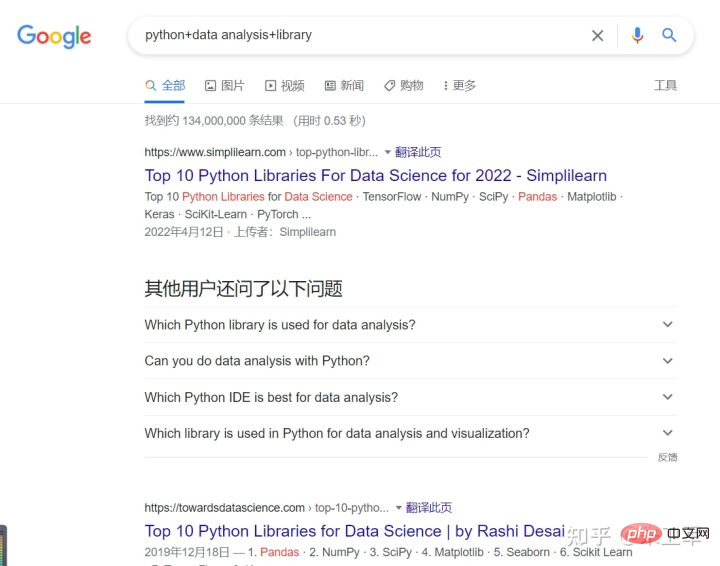

This is also the way most people find Python libraries, and it is also the simplest way. Search out other people’s experience posts to see if it suits you. However, this method is sometimes difficult to search accurately, and many unpopular libraries have little content, so search engines naturally cannot crawl the library you want.
If you can't find the library you want through searching, you have to use the second method.
PyPi is Pyton's package indexing platform, its full name is Python Package Index. All third-party libraries are in it, and there are estimated to be tens of thousands. However, PyPi is an English interface and does not have a Chinese version, so you need to have certain English reading skills.
The PyPi official website has a search function. You can search for the library you want, or you can query related libraries through the ribbon index.
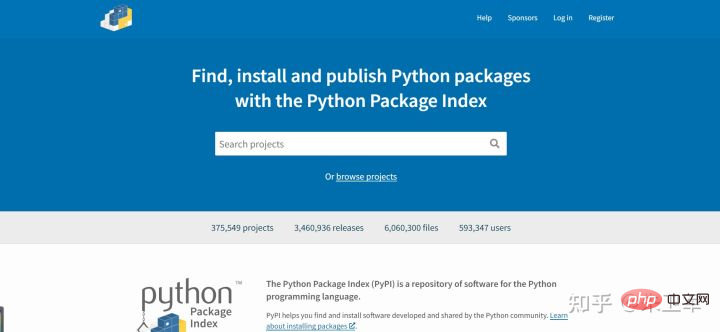
When we click browse projects, we will enter the search page, which contains topic search, that is, search based on the theme of the library.
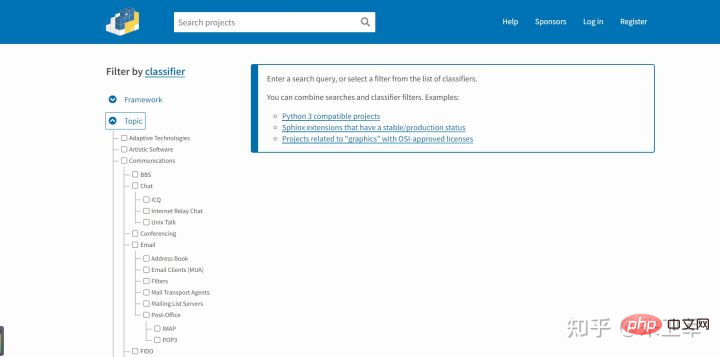
For example, if you want to find a third-party Python library about finance, you can find Financial and click on it, and all finance-related libraries will appear.
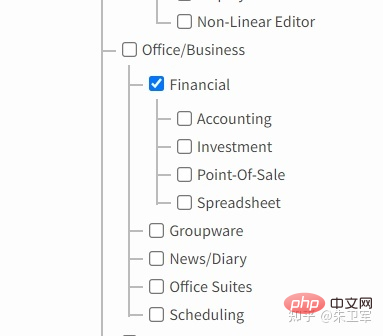
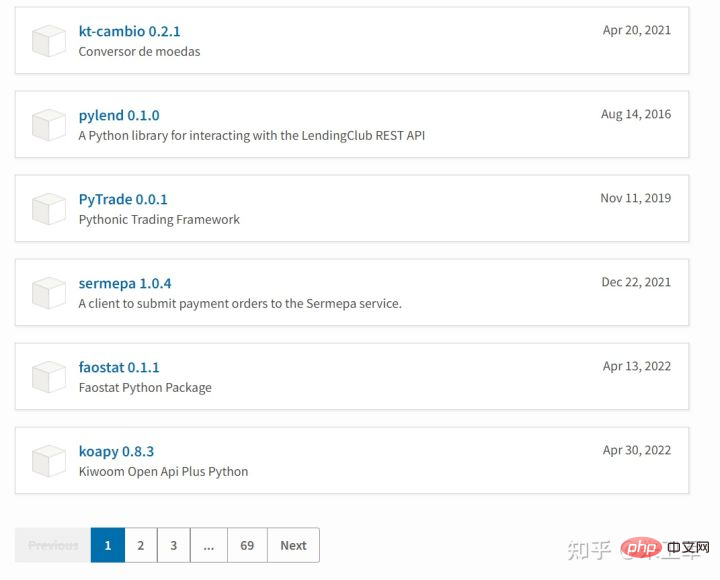
#You can also perform a combined search, such as financial accounting, and accounting-related libraries will appear.

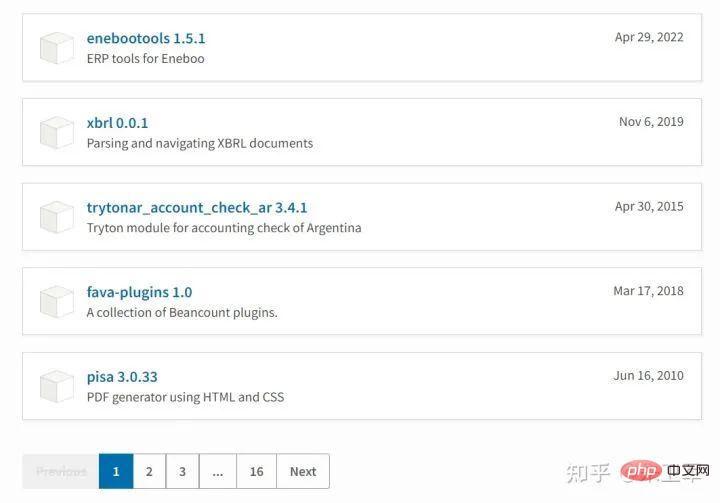
After selecting a library, click in and you will see a detailed introduction and simple tutorial of the library.

In general, PyPi is the best platform for querying Python libraries because it is the most complete, up-to-date, and detailed.
But the disadvantage of PyPi is that there are too many libraries in the same category, making it difficult for novices to identify which one is suitable to use, and it lacks grass-growing content.
If you are a person who is used to being planted, then the third method will suit you.
Github is the world's largest code hosting website, which gathers code farmers and the best code projects around the world. Many Python library codes are hosted on Github , such as pandas, matplotlib, tensorflow, etc.
At the same time, Github also has many resource projects developed by Python enthusiasts, including the application and integration of many libraries.
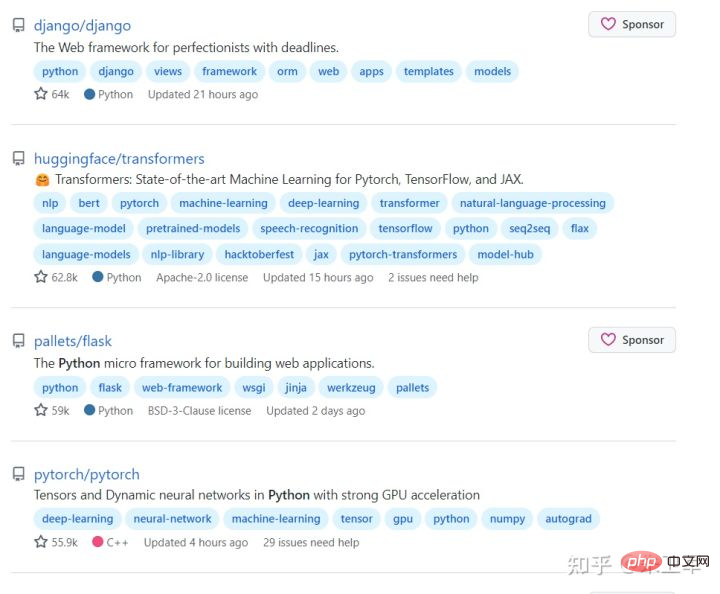
For example, there is a project called awesome-python, which organizes hundreds of popular libraries and their introductions into different categories, including web frameworks, web crawlers, web content extraction, and template engines. , database, data visualization, image processing, text processing, natural language processing, machine learning, logs, code analysis and more than a dozen scenarios.

For details, please see: Collection! A large collection of 1000 Python third-party libraries
Another interesting project is HelloGithub. The author collects the information on Github every week Various interesting projects, including various libraries for Python.
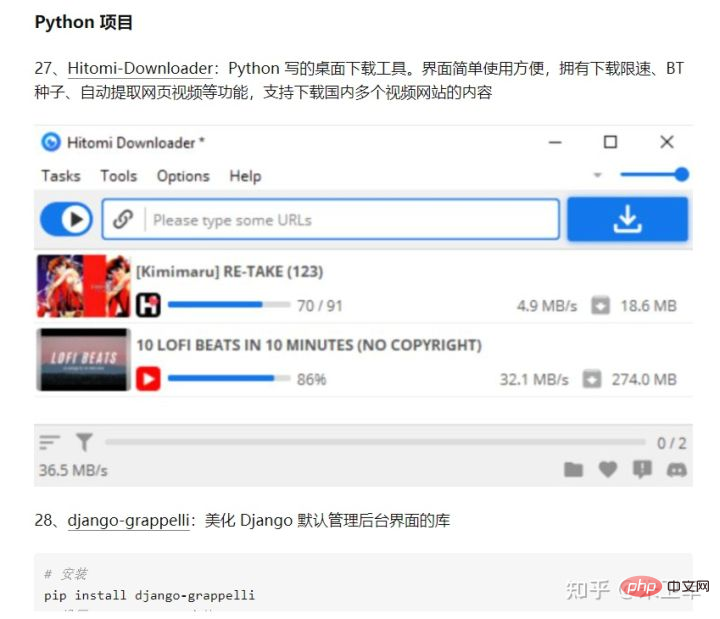
In addition to the above three methods, another more effective way is to ask Python programmers. They use Python every day and must be familiar with various libraries.
In short, in the era of information explosion, search is a critical skill. It is not difficult to find a suitable Python library. The difficulty lies in how you determine your own needs and prescribe the right medicine.
The above is the detailed content of Someone asked, how to find a suitable Python library?. For more information, please follow other related articles on the PHP Chinese website!




